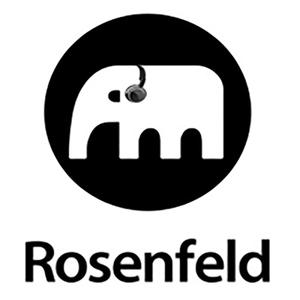Systems Provocateur with Dr. Luke Roberts
“Systems are very good at being resilient,” and “Systems are very good at dehumanizing,” are sentiments that anyone who has worked in organizational transformation or systems change can appreciate. Luke Roberts is the COO and co-founder of HighFive and a speaker at the upcoming Advancing Service Design Conference. As a self-proclaimed "systems provocateur," Luke emphasizes the importance of understanding the underlying dynamics of any system, whether it’s in education, healthcare, or corporate environments. He and Lou discuss the intricacies of how systems operate and the challenges faced when attempting to provoke meaningful transformation, often drawing on relatable insights from Luke’s work within education systems.
One of the standout insights from the conversation is the vital role of time in enacting change. Luke argues that significant systems change requires a long-term commitment, with research indicating that anything less than three years typically fails to yield lasting results. This understanding is crucial, especially when organizations often seek quick wins that can lead to a cycle of temporary fixes without addressing deeper issues.
Ultimately, our discussion reveals that provoking change is not just about identifying problems or changing individuals; it's about creating a collective vision and investing the time and energy required to realize it. As we navigate complex systems across various sectors, embracing the challenge of systems change can lead to meaningful and sustainable transformation.
What You'll Learn from this Episode:
- The Nature of Systems Change: Understanding that systems are complex and often resistant to change, requiring a nuanced approach to provoke transformation.
- The Importance of Time: Recognizing that meaningful systems change typically takes at least three years, challenging the desire for quick wins and highlighting the need for long-term commitment.
- Energy Dynamics in Systems: Exploring how the flow of information and attention affects change efforts, and how misdirection can stall progress.
- Collaboration Across Stakeholders: The necessity of fostering collaboration among all participants—whether in education, healthcare, or corporate environments—to create a shared vision for change.
- Provocation as a Tool for Change: Learning how to challenge existing norms and behaviors within a system without blaming individuals, thereby encouraging open dialogue and reflection.
- Practical Examples and Insights: Gaining insights from real-world examples, such as the education system, to illustrate how systemic issues can perpetuate negative outcomes and the strategies needed to address them.
Quick Reference Guide:
0:14 - Meet Luke
2:40 - An example of change at a system level - bullying in schools
5:50 - Helpful frameworks - mapping and metaphors
9:06 - Why training individuals is not a long-term solution
14:00 - The window of change
18:13 - 5 reasons to use the Rosenverse
20:28 - Provoking systems
24:58 - Flow of energy
28:49 - Luke’s gift for listeners
Resources and Links from Today's Episode:
Advancing Service Design - December 3-4, 2024 https://rosenfeldmedia.com/advancing-service-design/
The Grasshopper: Games, Life, and Utopia by Bernard Suits https://www.amazon.com/Grasshopper-Third-Games-Life-Utopia/dp/1554812151/
Leading Schools and Sustaining Innovation by Luke Roberts https://www.amazon.com/Leading-Schools-Sustaining-Innovation-Roberts/dp/1032015624/
11 November 2024, 4:06 pm
